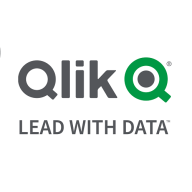

Informatica PowerExchange and Qlik Replicate compete in the data management and replication category. Informatica PowerExchange appears to have an edge due to its robust data transformation capabilities and broad connectivity in big data environments.
Features: Informatica PowerExchange offers real-time integration, native change data capture (CDC), and extensive connectivity which supports its scalability and ability to manage complex workloads. Qlik Replicate is praised for its ease of use, real-time data capture with minimal latency, and capability to operate without traditional ETL processes, ensuring a seamless data manipulation experience.
Room for Improvement: Users of Informatica PowerExchange suggest improvements in its integration capabilities with diverse systems, the user interface, and pricing structure. Enhancements in support services and software processes are also recommended. Qlik Replicate users call for better error message documentation, performance improvements in data migration, and clarity in its pricing model. An enhanced UI and extended third-party integrations would add value.
Ease of Deployment and Customer Service: Informatica PowerExchange supports hybrid and on-premises setups but faces challenges in initial deployment and customer support delays. Qlik Replicate is noted for simple deployment across cloud models, though support experiences are mixed, with occasional unclear error messages.
Pricing and ROI: Informatica PowerExchange has a high pricing model based on capacity licensing, demanding notable initial investment but offering value through comprehensive features. Qlik Replicate, while also expensive, particularly for small businesses, is valued for reducing workloads on core systems with a pricing model based on data sources and usage. Both tools promise potential for good ROI in environments necessitating real-time data solutions.
I conducted a cost comparison with the AWS service provider, and this option is much cheaper than the Kinesis service offered by AWS.
Their support aligns with what I have experienced with Informatica data quality teams, and it is quite effective.
The support was good enough, and they were able to resolve all the issues I raised in the past.
Even priority tickets, which should be resolved in minutes, can take days.
Technical errors sometimes occur, such as network breakages at the source level, which breaks connectivity.
One area that could be improved is performance, as PowerExchange sometimes has less performance compared to native connectors when dealing with a huge volume of data.
It is a core-based licensing, which, especially in the banking industry, results in the system capacity being utilized up to a maximum of 60%.
The pricing and cost depend heavily on SAP's licensing structure, especially if using SAP integration services.
Licensing is calculated based on the machine's total capacity rather than actual usage.
The primary advantage of Informatica PowerExchange is being able to extract data from source systems that Informatica does not natively support.
PowerExchange is one of the best software solutions to build integrations with non-Oracle or standard database services, especially for SAP and Hana products.
Data retrieved from the system can be pushed to multiple places, supporting various divisions such as marketing, loans, and others.


Informatica PowerExchange Connectors provides high performance, out-of-the-box connectivity without having to develop custom data access programs.
Qlik Replicate is a data replication solution for replicating data from one source database to another for business intelligence software. It offers data manipulation and transformations, replication without impacting source databases, and ease of use without needing ETL. The solution is stable and user-friendly, with detailed logging and support.
Qlik Replicate has improved the organization by allowing each team to replicate their data into a single-source data location. The most important feature of Qlik Replicate is its ability to replicate and update records without needing a programmer.
We monitor all Data Integration reviews to prevent fraudulent reviews and keep review quality high. We do not post reviews by company employees or direct competitors. We validate each review for authenticity via cross-reference with LinkedIn, and personal follow-up with the reviewer when necessary.